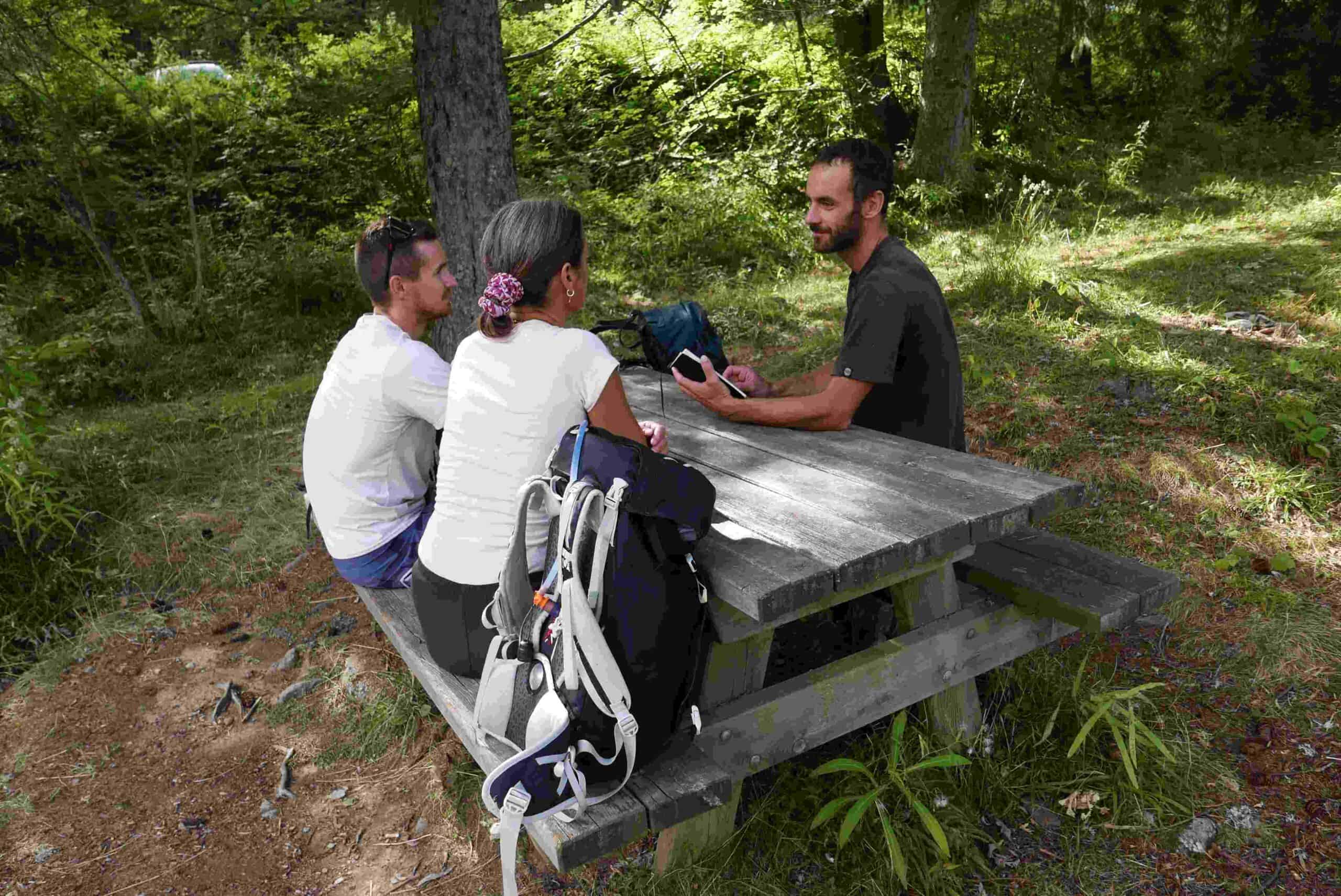Authors: Véronique Reynier, Mathieu Schoendoerffer (Université Grenoble Alpes)
Introduction
TranStat project focuses on transition processes in mountain resorts, and aims to put individuals (tourists, excursionists, local residents) at the heart of the approach. It is therefore planned that, on the one hand, they will be the subject of a diagnosis, in the same way as socio-economic and environmental issues, and, on the other, that they will participate in the co-construction of development scenarios within the various Living Labs. The diagnosis will analyze people’s practices of the places, in other words the way they experience these territories: How do they see them, and what do they look for? What are their practices and behaviors? How do they perceive their future? How do they project themselves in those places? What are the socio-demographic and cultural variables likely to explain the different positions taken?
Our research team (Université Grenoble Alpes) was in charge of drawing up an interview grid for all the teams involved in the TranStat project, and applying it to the two French Living Labs, Megève and Saint Pierre de Chartreuse.
First steps
Literature review and construction of the interview grid
The first step consisted in studying the existing literature on the social dimension of the transition of mountain resorts and constructing an interview grid to be used during interviews with all users of the areas studied.
By mobilizing sociological, marketing, social and environmental psychology approaches, the bibliographical work and the construction of the interview grid allowed us to explore various relevant themes to analyze the behaviors of individuals frequenting or living in mountain resorts, in a context of climate change and societal evolutions. For example:
determinants in the choice of summer and winter tourist destinations;
the relationship between individuals and the areas studied (image, satisfaction, attachment, etc.) and the natural environment (fauna, flora, landscapes ;
people’s practices (sporting, cultural, social, etc.) and their evolution;
people’s relationship with climate change, and their perception of its current and future effects on mountain resorts and on their individual behaviors.
The interview grid developed around these themes is now available to all TranStat project research teams and may evolve as the work progresses.
Field work
To initiate the fieldwork, it was first decided to take advantage of the summer period to focus essentially on tourists, in the sense of people who come to the area and stay at least one night, and day-trippers. Indeed, the summer vacations logically proved to be one of the relevant times to focus on this population, given their presence at the study sites. In order to reach the public of summer tourists, the interviews were generally not planned in advance, but were conducted in places frequented by tourist customers: village squares and streets, activity sites (climbing sites, hiking trails, sports facilities), hotels, bars and restaurants, around heritage sites, or during local events. In this way, in July and August 2023, we interviewed around a hundred people in the resorts of Megève and Saint Pierre de Chartreuse. Interviews lasted between ten minutes and 1h30, depending on the respondent. The variety of locations and times enabled us to obtain a varied initial panel, and to highlight several topics that will contribute to the construction of the social diagnosis of the Living Labs studied.
The difficulty of interviewing people who had not planned to take part in those interviews was largely offset by their availability during the vacation period, and by the interest in the transition of mountain resorts shared by the large majority of respondents.
Analysis of the data collected is currently underway. Several themes have already drawn our attention, and may be the subject of more in-depth analyses, putting them in perspective with the issues linked to climate change and transition dynamics. For example, a focus could be made on the role played by attachment to place in people’s behaviors and representations, the search for authenticity as a factor in touristic appeal, the definition of the perimeter of the tourist destination by individuals, the place of vacations in people’s lives (continuity or discontinuity with everyday life, compartmentalization or decompartmentalization between the vacation spot and the rest of the territory, etc.), or the role of skiing in winter tourism holidays.
Perspective and conclusion
This fieldwork, carried out during the summer months and focusing mainly on tourists and day-trippers, will be supplemented by new series of interviews conducted in autumn, winter, and spring, in order to gain a complete picture of the different tourist practices in the mountains. Data from various documents (previous studies, satisfaction questionnaires, attendance data, etc.) will complete this diagnosis.
We will also continue our research, both bibliographical and in the field, with local residents. The challenge will be to include them at the heart of the transition process as well, by bringing out themes and issues that are specific to residents, but also by identifying topics that intersect with the results of our work with tourists and day-trippers. All the data collected will be analyzed in the light of socio-economic and environmental diagnosis, which are also in progress. This crossover approach will enable us to put the various results into perspective and will form the basis for the co-construction of future scenarios with local stakeholders.
Finally, sharing our results with the ones of the other European Living Labs will enable us to analyze our findings through the prism of observations made in other regions, to compare them, and thus to find analysis keys and identify transition levers common to the network of Living Labs in the Alpine arc, or more specific to the particularities of the local or national regions studied.



